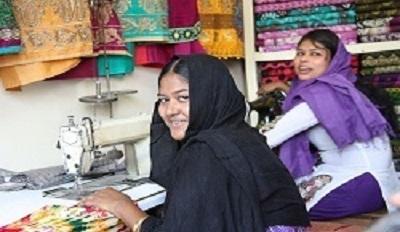
Today, May 13th, is the fourth anniversary of the first major binding supply chain agreement ever implemented in the apparel industry for overseas suppliers: the Bangladesh Accord on Fire and Building Safety. The long-percolating ideas in the Accord secured a contractual commitment by brands to stand by their suppliers and ensure safety repairs would be completed and reported on transparently, among other things, after years of brands’ struggling with a cut-and-run approach to supply chain monitoring. The ground-breaking agreements achieved in the Accord were borne out of brands, trade unions and human rights NGOs being determined to prevent a repeat of the April 24, 2013 tragedy in Savar, Bangladesh, when the world witnessed the largest factory disaster in the history of the global apparel industry. When the Rana Plaza factories collapsed, workers and advocates watched helplessly from around the world as media reports on the death toll rose from dozens to hundreds and ultimately to over eleven hundred workers lost.
In the intervening years, the Accord has made factories safer for more than two-and-a-half million garment workers. The improvements in structural, fire, and electrical safety accomplished under the Accord have undoubtedly helped avert further deaths and injury in an industry long plagued by grossly unsafe working conditions. In the past four years, no Accord-covered factory with an active or completed action plan has seen a workplace fatality due to fire, electrical or structural hazards.
As originally scheduled, the Accord program is slated to end in twelve months. But much more work is still needed before Bangladesh’s garment industry can be declared safe for workers, and this will not be achieved in just one year. Renewing this agreement is essential to ensure that the gains achieved by the Accord are sustained and that the additional factories that come into the supply chains of Accord brands and retailers are properly inspected, with all hazards corrected and with full public reporting.
After four years of supporting and promoting the mission of the Accord as witness signatories, the International Labor Rights Forum, Clean Clothes Campaign, Maquila Solidarity Network, and Worker Rights Consortium have outlined a proposal to extend and enhance the Accord. This proposal comes from carefully examining the strengths and weaknesses of the program, and consulting closely with our Bangladeshi union and NGO partners as well as Accord staff. In brief, we recommend:
- Adding a guarantee that workers who lose their jobs due to factory closure or relocation, necessitated by safety issues, will be paid the severance and other terminal compensation they are legally due under Bangladesh labor law;
- Expanding the complaint mechanism on employer retaliation to include all violations of union rights, to ensure workers are free from fear of retaliation for organizing and speaking out on safety and other key issues;
- Making language on the brand’s financial obligations stronger, clearer and more transparent, so as to close any space brands may use to evade financial obligations. This will support the goal of ensuring factories actually get the financial help they need in a timely manner;
- Expanding the coverage of the agreement to include more factories that are part of the apparel supply chain, including spinning mills, leather tanneries, factories making sheets and household textiles, and apparel washing facilities;
- Requiring public disclosure of brand-supplier relationships, since the current version of the Accord only requires disclosure to Accord staff and fellow brand signatories;
- Enhancing the dispute resolution processes to work faster and more efficiently, including adding a schedule of fines that will be applied to brands in case of violations.
Several critics argue that the Accord should complete its fifth year and merge with other brand-led initiatives or government programs coordinated by the International Labour Organization. That, however, would be a mistake. With one more year on the contractual commitment the brands made, now is an important time to strengthen and improve this ground-breaking initiative and to invite other brands to join in building out a fundamentally new approach to ensuring workers’ safety and welfare. Such an approach would be built on transparency, a committed partnership with suppliers and a respectful relationship of equals among brands, factory managers and the trade unions charged with ensuring safe and fair working conditions. At this critical juncture for Bangladesh’s garment workers, many of whom continue to face safety hazards and violations of their rights to freedom of association and collective bargaining, there’s no space to drop this effective tool.

